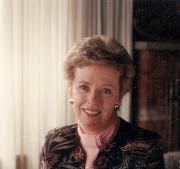Looking back at the Boomers’ history of our nation, it is easy to categorize it as a time of selfishness by young people who rebelled against their parents and the establishment. A lot of them experimented with drugs, many ran away from home to “experience” life, others marched in defiance of the draft and against a war that seemed both futile and unjustified.
But to believe that rebelliousness defined the Boomer era is to ignore the fact that many of their parents enabled their behavior. Why? Simply because it was time for change in our Country. Everyone knew it deep in their hearts. Even those who bemoaned the obvious had to admit that times were changing, and there was little anyone could do to stop it. Very few Americans escaped the impact.
In 1976, the nation celebrated 200 years of freedom. For those 200 years, our Constitution framed our legal system while our ancestors’ religious beliefs and lifestyles defined how we, too, should conduct our lives. But for a generation born following World War II, what did freedom mean if not the freedom to "pursue happiness" in their own way?
Prior to World War II, we were a mostly rural nation made up of immigrants from across the continent, and difficult times kept our ancestors’ focus on surviving. By the time World War II had ended, technology exploded, changing our collective lives in more ways than could have possibly been foreseen.
Suddenly, superhighways began to crisscross our country, drawing more citizens into the big cities, then to the suburbs sprouting outside them. Cars changed the focus of our lives from home and hearth and simply surviving to new shopping centers, theaters, resorts, restaurants, and other fun and interesting activities. New technology-based jobs lured rural residents to the center of all that activity. Technology even changed the lives of those who remained on farms and ranches as they learned new ways to grow crops faster, and raise bigger and more profitable cattle, all of which freed up time for more leisure activities.
But even those changes failed to have the impact of “the pill”! Not too many years ago, business owners hesitated to hire women because they knew their female employees would probably get married, become pregnant and leave. Certainly it was difficult for any woman to plan her career and move up the corporate ladder. Suddenly with the “pill,” women could plan their pregnancies to fit their career and family needs. There was still the problem of balancing work and family, but women worked the problems out in their own way. Some opted out of motherhood while others found creative ways to juggle their two chosen commitments.
Television speeds change and rebellion
Since this country was founded, there have always been people who rebelled against the establishment. In the early days, some moved West in hopes of finding a more open society where they could found their own communities with like-minded people. Others set up their own version of communes or religious sects where they were free to practice their choice of lifestyles. The Mormons are just one such religious society which founded its own home in Utah. There were and still are many, many less well-known groups scattered across the country.
Following World War II, national and local laws restricted what many perceived as their freedom to live, worship, enjoy life, so the time was ripe for certain groups to challenge the status quo. That the Boomer generation was so large made its reputation for rebelliousness appear much larger than life. Television, a new technology that spread news and images immediately around the world, only magnified and accelerated the sense of urgency among the young to change the world.
The Boomer generation grew up amid a sense of doom as their parents failed to address the problems that faced the world. The Cold War was foremost in the minds of those youngsters who sought to change the world, and the Vietnam War was a reality that killed and maimed thousands of their generation.
Read the stories of survivors of the Boomer era in the book, Looking Back: Boomers Remember History from the ‘40s to the Present. There you’ll find personal, touching stories written by people who served and fought in Vietnam, to those who lost their homes to Hurricane Katrina. You’ll also learn how the forces of change, such as integration of schools in the South, affected students who were there. And you’ll see why the assassination of a President, and soon after, the assassination of two leading civil rights figures terrified our nation’s citizens.
Twenty-four emotional stories told by people who were there, who witnessed history as it happened, make Looking Back a living testament to the strength and integrity of both the Boomer and their parents’ generation.
Saturday, April 11, 2009
Subscribe to:
Posts (Atom)

